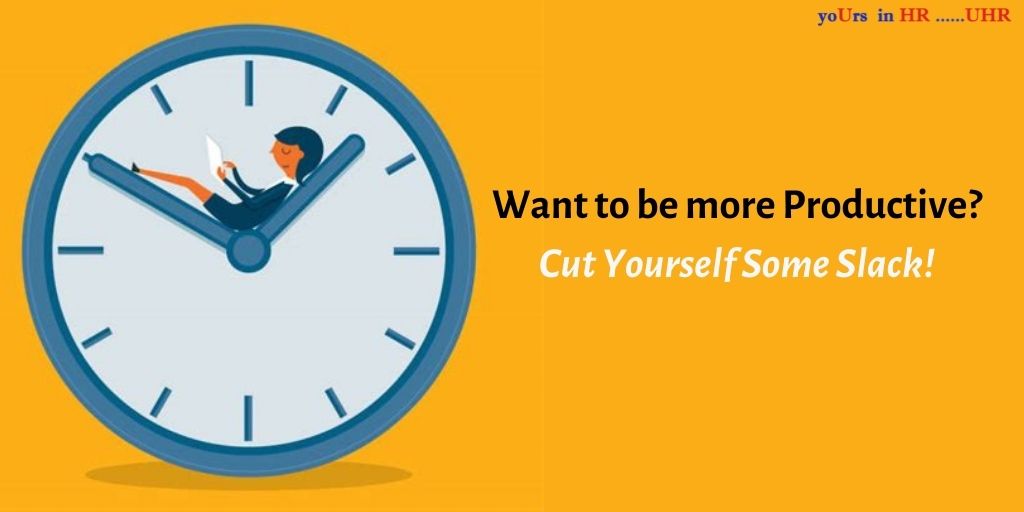
Productivity is a common theme to talk about. One Google search, and we will get hundreds and thousands of results about it. From books, to articles, to videos and reels, we shall find tips and tricks to be productive all the time. We are told that perspiration beats inspiration- ideas come to those who work towards them. But what if one of the ‘productivity hacks’ was to actually get yourself some slack time? Slack time is when, to put is plainly, one is zero percent productive, and one is actually not working. Slack time is the time between agendas, tasks when one just seems to be ‘sitting around’.
The book Slack: Getting Past Burnout, Busywork, and the Myth of Total Efficiency, Tom DeMarco seems to say that!
Let us quickly take a look at how having some slack time might actually be useful and the need to be productive all the time might actually be proving counter-productive.
Less Slack, More Build-Up:
An article on the blog Farnam Street, while talking about the book, gives a hypothetical example of the workings of the office of a business tycoon named Tony. One look at his office, and it is everything opposite to what one expects in the office of a business tycoon- the office doesn’t look ‘busy’, buzzing with activity. Tony’s secretary Gloria seems to be just quietly sitting on her desk, and not really seems to be working…she seems to be slacking off!
But one phone call, and Gloria gets up on her feet, schedules the required appointment and Tony now knows what his next agenda is.
Here in this hypothetical office, the task is not look busy all the time, and not find work to do all the time. Of the agenda says so, the work shall be done quickly, but there won’t be a compulsion to have a long to-do list. If there’s work to do, great, finish it off; if there’s not much to do, great, take a little break! Slack time is not a bad time here.
Less slack time implies built-up work, and thus, here for example, if Gloria had already built-up work, she wouldn’t have been able to fix that quick appointment.
The Space to Respond:
Slack time gives one the much-needed space to breathe, which obviously gives one the rest and motivation to move on to the next task with more energy and enthusiasm to do the task well. But slack time also gives one the time and flexibility to respond in the face of unpredictable changes. Demarco gives the example of those puzzle-like tiles.
Think of a square with eight tiles, with one empty space that allows you to slide them into place. The empty space is the equivalent of the slack as the article points out. If you fill up that space,
‘…there is no further possibility of moving tiles at all. The layout is optimal as it is, but if time proves otherwise, there is no way to change it.’
Slack time thus adds into the organisation, processes or tasks a much-needed dynamism.
Slack time is When Reinvention Happens:
Slack time actually gives one time to pause and look at the bigger perspective. It is when introspection and reinvention happen. It is when ideas take shape. As the article points out:
‘Only when we are 0 percent busy can we step back and look at the bigger picture of what we’re doing. Slack allows us to think ahead. To consider whether we’re on the right trajectory. To contemplate unseen problems. To mull over information. To decide if we’re making the right trade-offs. To do things that aren’t scalable or that might not have a chance to prove profitable for a while. To walk away from bad deals.
…..This is in contrast to grabbing the first task we see so no one thinks we’re lazy.’
The pressure to look constantly busy actually might also make us work slower. We want to look busy all the time, and hence we end up finishing the task ‘not on time’, so that we wouldn’t have to find a ‘buffer task’ to look busy. Kabir’s doha of ‘kal kare so aaj, aaj kare so ab..’ might actually have some relevance here. While on one hand the doha might look like it is talking about being productive, it actually can have a different perspective: we finished the work that had to be done, on time, “ab“, effectively without procrastinating and now we have some spare time at hand to take a step back and look at the big picture, set new agendas and recollect ideas.

